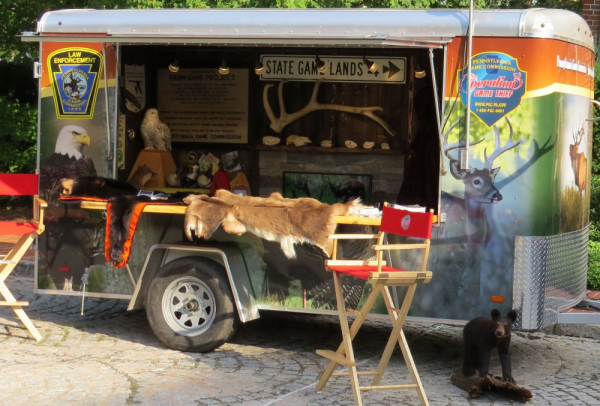Camping & Survival
Poaching Ginseng is Still Poaching (Wait, What?)

Okay, so we know poaching deer is poaching. And poaching salmon is poaching. But ginseng? Isn’t that the wild herb that’s supposed to put lead in your pencil? Oh, wait. I guess now we know why they have to regulate the harvest of wild ginseng…
The Ohio Department of Natural Resources (ODNR) Division of Wildlife recently auctioned off $51,542 of ginseng and yellow root that was forfeited from illegal possession cases. That total came from 59.7 pounds of ginseng and 3.1 pounds of yellow root from evidence collected following cleared Ohio court processes.
The money raised in the auction was added to the state’s Wildlife Diversity Fund, which supports projects for species of greatest conservation need such as sandhill cranes, trumpeter swans, and lake sturgeon.
The recent Division of Wildlife auction contained roots that were illegally harvested or possessed and were subsequently forfeited by the court of jurisdiction. During the auction, 23 lots of ginseng and one lot of yellow root were sold to licensed ginseng dealers, averaging a price of $861.52 per pound of ginseng sold and $35.16 per pound of yellow root.
That’s a lot of fully leaded pencils!
The roots sold in the auction were from Division of Wildlife criminal cases made across 20 Ohio counties since February 2021. Counties where ginseng was seized were Adams, Athens, Belmont, Clermont, Coshocton, Fairfield, Guernsey, Highland, Hocking, Knox, Lawrence, Meigs, Morgan, Muskingum, Perry, Pickaway, Pike, Richland, Ross, and Washington.
American ginseng is a slow-growing perennial herb that is found throughout Ohio in small, scattered populations. It is highly valued for its (AHEM) medicinal properties. Ohio has established a ginseng management program to allow for limited collection and to ensure the continued presence of wild ginseng.
The harvest restrictions for cannabis might be less stringent.
In Ohio, ginseng can only be harvested between September 1 and December 31, annually. Harvest is limited to mature ginseng plants (at least three leaves) and regulations stipulate that harvesters are required to plant the seeds of collected plants where they were found. Ginseng diggers must have written permission to collect ginseng on private and public lands, and digging ginseng is prohibited on state-owned lands and national park property. Visit ohiodnr.gov to learn more about Ohio’s ginseng management program.
The Division of Wildlife regulates ginseng harvest and sale in Ohio. A ginseng dealer permit issued by the Division of Wildlife is required to buy ginseng for resale or export, and ginseng must be certified by the Division of Wildlife before it is exported from Ohio. Ohio wildlife officers and investigators have statewide authority to enforce the state’s ginseng harvest and sale laws.
-

 Hunting2 weeks ago
Hunting2 weeks agoHow to Score Deer Antlers: Boone & Crockett Guide
-

 Primitive Survival3 days ago
Primitive Survival3 days agoJohn Allen Chau: North Sentinel Island Tragedy – 7th Anniversary
-

 Accessories2 months ago
Accessories2 months agoKilian Jornet States of Elevation Midway Update
-

 Uncategorized1 month ago
Uncategorized1 month agoBest Corn Mazes 2025: Top 10 in the US for Fall Fun





